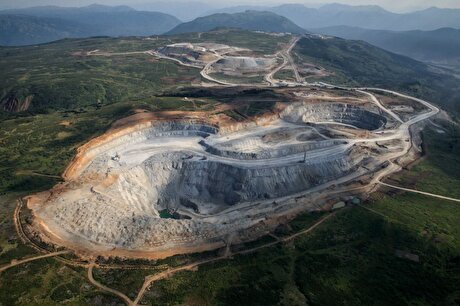
Opec slashes 2020 oil demand growth forecast

Its forecast for global oil demand growth in 2020 is now just 60,000 b/d, down from 990,000 b/d in its previous Monthly Oil Market Report (MOMR), and from an adjusted growth forecast of 480,000 b/d it made just last week.
Opec now expects global oil demand in 2020 at 99.73mn b/d. Further downward revisions are likely should the "current status persist", it said in the latest MOMR.
Opec lowered its forecasts for the call on its members' own crude to 28.2mn b/d, from 29.3mn b/d in its previous MOMR. This is above the assessment by secondary sources, including Argus, of 27.77mn b/d produced by Opec members in February, but comes as several Opec and non-Opec countries have said they will increase supply following the collapse last week of talks to extend and deepen production cuts.
Abu Dhabi's state-owned Adnoc, Saudi state-controlled Aramco and Russia have all said they would increase crude availability to the market in April.
Opec said non-Opec oil supply growth will reach 1.76mn b/d in 2020, down by almost 50,000 b/d from February's MOMR. It has increased growth forecasts for Russia, Thailand, Indonesia and Oman, and revised lower those for the US, Mexico, Norway, Colombia, Azerbaijan and China. It revised down its forecast for US liquids production by 360,000 b/d b/d to 900,000 b/d.
Citing preliminary January data, Opec said OECD commercial oil stocks rose to 2.94bn bl, 56.9mn bl higher than the same time a year earlier, and 12.9mn bl above the rolling five-year average.
The effects of the coronavirus on global economies have been exacerbated by high global debt levels, a slowdown in world trade and manufacturing, slowing capital expenditure and a decelerating automotive industry, Opec said. Fiscal stimulus by governments could lead to a slight recovery in the second quarter in China. But normalisation in global activity is unlikely before the fourth quarter, according to the report.
"Depending on future developments, further downside risk remains," it said.
By Rowena Edwards


Gold price eases after Trump downplays clash with Fed chair Powell

Copper price hits new record as tariff deadline looms

Brazil producers look to halt pig iron output as US tariff threat crimps demand

Chile’s 2025 vote puts mining sector’s future on the line

Gold price could hit $4,000 by year-end, says Fidelity

Three workers rescued after 60 hours trapped in Canada mine

US targets mine waste to boost local critical minerals supply

Glencore workers brace for layoffs on looming Mount Isa shutdown

Energy Fuels surges to 3-year high as it begins heavy rare earth production

Trump tariff surprise triggers implosion of massive copper trade

Maxus expands land holdings at Quarry antimony project in British Columbia

BHP, Vale accused of ‘cheating’ UK law firm out of $1.7 billion in fees

Southern Copper eyes $10.2B Mexico investment pending talks

American Tungsten gets site remediation plan approved for Ima mine in Idaho

Kinross divests entire 12% stake in Yukon-focused White Gold

Gold price could hit $4,000 by year-end, says Fidelity

Southern Copper expects turmoil from US-China trade war to hit copper

Ramaco Resources secures five year permit for Brook rare earth mine in Wyoming

Column: EU’s pledge for $250 billion of US energy imports is delusional

Trump tariff surprise triggers implosion of massive copper trade

Maxus expands land holdings at Quarry antimony project in British Columbia

BHP, Vale accused of ‘cheating’ UK law firm out of $1.7 billion in fees

Southern Copper eyes $10.2B Mexico investment pending talks

American Tungsten gets site remediation plan approved for Ima mine in Idaho

Kinross divests entire 12% stake in Yukon-focused White Gold

Gold price could hit $4,000 by year-end, says Fidelity

Southern Copper expects turmoil from US-China trade war to hit copper

Ramaco Resources secures five year permit for Brook rare earth mine in Wyoming














